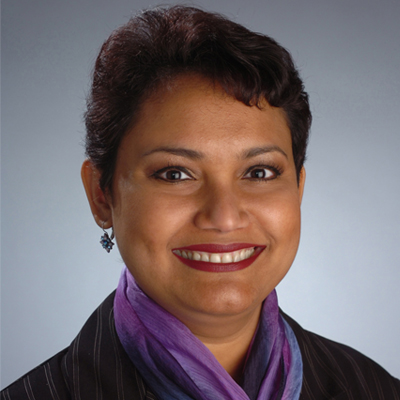Solutions for the global water crisis
Water is the most critical resource of our time. None of us can live without it. Yet nearly a billion people today live without access to adequate amounts of safe drinking water, a basic human right. It seems unconscionable that thousands of infants die each day due to lack of water or from waterborne diseases, and that millions suffer daily from lack of sufficient water. The vagaries of water-related environmental transformations due to climate change will only further marginalize communities around the globe and worsen global water problems. Dr. Farhana Sultana, Associate Professor of Geography at the Maxwell School of Syracuse University, has long been interested in how the global water crisis affects different communities and the ways to solve water problems. Her award-winning research investigates the ways to ensure everyone has safe clean water and how water affects people’s abilities to live full lives, engage in development and social progress, and the critical role water plays in all aspects of our lives: from urban planning, international development, and economic policies to political strife, ecological sustainability, and people’s cultural practices and sense of self. Thus, Dr. Sultana’s research reaches communities not only in the developing world where the water crisis is particularly acute and impacts impoverishment and development in significant ways, but also to communities in the US such as Flint and Baltimore where access to safe drinking water is increasingly limited, and to southern California where the drought is having multifaceted consequences that are far-reaching.
Unique in her truly interdisciplinary, comprehensive, critically relevant, and impactful research, Dr. Sultana’s efforts seek to change the world for the better. In her own words, “If I wasn’t making a difference, I couldn’t do what I do.” By providing nuanced, balanced, and critical explanations and data that can inform decision-makers to make sustainable and equitable decisions, Dr. Sultana’s research has a wide-ranging impact on communities and countries across the globe. Additionally, her firsthand knowledge, insight, and experiences inform her rigorous research and drive her passion and commitments, thus extending her research to a personal mission to help others. While there are no easy, simple or singular solution to address the global water crisis, as context matters, Dr. Sultana’s work in particular focuses on the ways that the poor, especially women and children, are affected by water policies and practices, as well as the ways that environmental change (particularly climate change) is having unprecedented impacts on communities around the world. Thus, her research demonstrates how to solve locally-sensitive problems so as to enhance social progress and economic development, as well as foster public health, well-being and democracy. Focusing on local-global connections, examining complexities that are often overlooked, and explaining why things are the way they are and what could be changed to improve situations enables Dr. Sultana to provide critical information and analysis that matter across sites and scales.
Dr. Sultana’s research involves working in multidisciplinary research teams and engages with local communities, practitioners and decision-makers. Her research has been published in a variety of academic, governmental, non-governmental, and policy outlets, and she places importance in reaching and engaging with different audiences around the globe. Her 2012 book ‘The Right to Water’ is widely acclaimed and has already been translated into two languages.
Current research includes:
- Water Access, Democracy, and Sustainability: Dr. Sultana uses water as a ‘lens’ through which to explore changing social relations, environmental conflicts, and geopolitics. Her interdisciplinary research addresses key concerns of sustainability and equitable development that are significant in a globalizing world where water is increasingly becoming a scarce resource. Water crises affect communities in many different ways and it is imperative to understand the multifaceted ways water management can facilitate or hinder sustainable development. Ensuring secure access to safe water increases educational, employment, and health opportunities and reduces gender disparity as women are often the managers of water in the home. Dr. Sultana’s research has lasting implications for the global community, especially the poorest of society, as she seeks to understand how water affects their lives and livelihoods as well as their notion of belonging and democracy and to enhance people’s participation and voice in decision-making processes that affect their lives. This research thereby contributes to providing concrete and equitable solutions on the world’s growing water crisis as well as develop model methods, theories and tools that can inform decision-makers in order to advance positive and inclusive change for all.
- Climate Change Adaptation: Climate change is happening unevenly around the world, with more uncertainties in hydrological and ecological systems. As a result, social responses have been widely variable and contentious around the globe. Water is a central issue to how climate change is affecting life on earth – from floods, droughts and uncertain precipitation to unpredictable storms, sea level rise and storm surges. However, what is becoming increasingly clear is that the world’s poor, wherever they live, are bearing the brunt of the impacts of climate change and having to adapt the most. Dr. Sultana’s research investigates the ways that climate change adaptation is differently understood, implemented, challenged, and circumvented, and the various ways it affects different groups of people, especially in coastal communities in the developing world. Her efforts bring power relations, which occur across gender, race, class, and other attributes to the conversations more carefully and meaningfully so that adaptation policies and strategies can be improved to address issues of vulnerability, resilience and adaptation capabilities.
Find out more about Dr. Sultana’s research at her websites at www.farhanasultana.com and www.maxwell.syr.edu/faculty/sultana.aspx
Bio
Dr. Farhana Sultana is driven by a passion to make a difference and improve the world we live in. She has done this through her research, teaching, policy experience, outreach, mentoring, volunteering, and collaborations around the world. She employs her interdisciplinary education and training to address complex problems and engages with a variety of constituents. Having lived and worked on three continents, Dr. Sultana has witnessed and experienced a variety of ecological, economic, political, social, and cultural differences and disparities. Such experiences and exposure instilled in her a lifelong passion to understand the world and address problems from a young age.
Even as a child, Dr. Sultana was acutely aware of the inequalities in the world around her and how poverty affects people and places. One of the issues that caught her attention when she was young was the lack of a basic resource needed for survival globally -- that of water. In her own words, “water is life, we cannot live without it, yet this critically necessary resource is not available to everyone.” Growing up in both South Asia and the US, she would notice how water was often taken for granted, while many were dying from the lack of it. Young children were accompanying mothers to fetch precious water from miles away in some places, while others could simpy turn a tap to quench their thirst. Because of this, Dr. Sultana developed a passion for wanting to understand why these inequalities existed and what could be done about them.
Over time, as she read and learned more, Dr. Sultana developed a keen skill in noticing what is often overlooked and sought out connections between issues and problems. She discovered how concerns such as development, sustainability, and social justice were interlinked in many ways. Intrigued yet frustrated, she remained determined and optimistic during her adolescence hoping to “save the world” in whatever way she could.
During her undergraduate career at Princeton University, where she majored in Geosciences with a minor in Environmental Studies, Dr. Sultana began to understand the interdependency of humans and our environments, especially noting the profundity and complexities of nature-society relationships. The critical foundational knowledge she gained helped to underscore how our earth functions and how humans affect the environment.
After graduating Cum Laude from Princeton, she pursued graduate training in Geography with a MacArthur Fellowship at the University of Minnesota. There, she was able to enhance her scientific training with a more comprehensive understanding from the social sciences and public policy. In order to garner practical experience, she worked for the United Nations Development Programme (UNDP) in Bangladesh, managing a $26M sustainable development program. That experience further enabled her to understand how policies are made, how development is practiced, and the global politics involved.
Armed with both training and experience in the natural sciences, social sciences, and policy-making, Dr. Sultana commenced her academic career, becoming the third generation of teachers in her family. She first taught at King’s College London and now at the Maxwell School of Syracuse University. As a university professor she still hopes to do good for the world. Through her research, teaching, training, outreach, and influencing policy-makers and stakeholders, her goal is to contribute towards building a better world now and for future generations. What motivates her the most is to make the world a better place. Her hope is that “others will join in [her] longstanding efforts to do so too.”
Websites:


